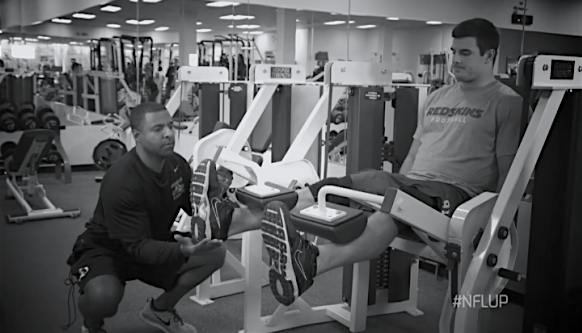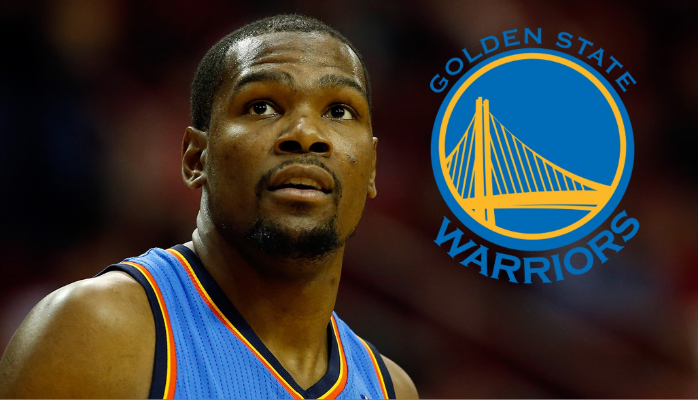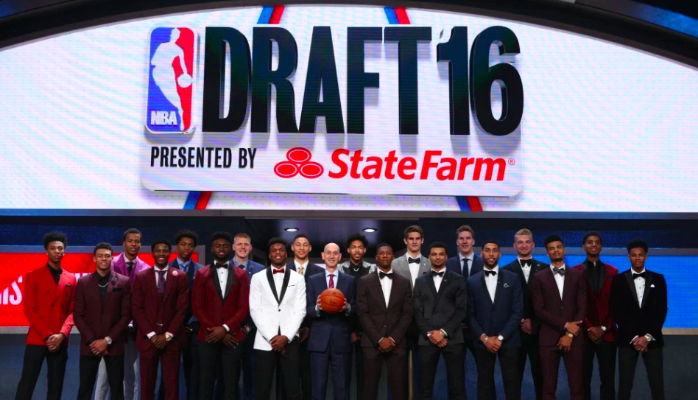CHAMEKA’S BIOGRAPHY
“Chameka has a strong background in physical, professional, and relationship coaching. She IS the Trifecta of Human Performance Coaching.” –Mike Green, M Welland Green Consultant/Chevron DWEP D&C
 Being first has never been Chameka Scott’s primary goal. She’s been too focused on teams, individual stories, and new challenges to worry about busting through glass ceilings. And yet, as she’s built other people up, she’s torn down old walls, excelling in arenas where women are traditionally scarce. As a result, she’s more than an incredibly effective performance coach. She’s a pioneer.
Being first has never been Chameka Scott’s primary goal. She’s been too focused on teams, individual stories, and new challenges to worry about busting through glass ceilings. And yet, as she’s built other people up, she’s torn down old walls, excelling in arenas where women are traditionally scarce. As a result, she’s more than an incredibly effective performance coach. She’s a pioneer.
“I don’t see or consider those limitations when I pursue challenges,” Chameka says when asked about the trailblazing. “But I do think there is an added responsibility that fuels my fire once I know I am representing something that has never been done before or has not been explored. I’m not intentionally looking for it, but I do love being the exception.”
Chameka is often the exception in more ways than one. She’s established a pattern of standing out that is not based solely on her gender, but on the high level of results she produces. The first woman ever hired to work offshore by Definitions USA, she served as the company’s Director of Operations before moving on to work as an Executive Performance Coach with Chevron Deepwater. In that role, she has pushed a key crew to work smarter on the Pacific Santa Ana in the Gulf of Mexico. The rig had 100 incidents––ranging from injuries to various other work-lost interruptions––in 2014. Since Chameka joined the organization that year, the Pacific Santa Ana has experienced an astounding zero incidents in 2015, and completed three wells ahead of schedule, resulting in a savings of over $20 million in AFE.
“I believe that helping people is fundamental to the human existence,” Chameka says, reflecting on the success. “When you do good for someone else, you also find healing within yourself. I was taught that if you help someone cross the river, you get to the other side as well. This is why I coach.”
When she took the job with Chevron, Chameka also launched her own firm, Práos Performance Group, based in Houston. Today, the Erickson Certified Professional Coach is also a Certified Emotional Intelligence 2.0 Practitioner who sees her role as a combination of educator and counselor. On the rig, Chameka actually plays multiple key parts: motivator, listener, consultant, team builder, and truth teller. Each role is informed by her unique background: A member of Baylor University’s 2005 National Championship women’s basketball team, the Friendswood, Texas native went on to play for the Sacramento Monarchs in the WNBA and then overseas in Europe. When she returned to the U.S. in 2010, she became the first female intern of the Houston Astros’ strength and conditioning program crew. She then became a sought-after personal trainer before she craved a new challenge, accepted the position with Definitions USA, and headed to a rig deep in the gulf. “A common thread throughout all my experience, whether it was playing basketball, training, or working offshore, is that people want to be a part of something––something bigger,” Chameka says.
Chameka has both longed for and helped create “something bigger” her entire career. Her experiences with various groups in high-profile arenas with lofty stakes have given her remarkable insight into team dynamics and individual psychology. Every team is different, she explains, and every person must try to understand where they fit into each new collaboration.
“In high school, you get to be the superstar,” Chameka begins. “You get to win a lot of awards. But your team may be awful and never go anywhere or really accomplish anything. Then, you get to college where everybody is good. You’re playing on a team where your role completely changes, because you can’t just be good. You’ve got to find one thing and be awesome at it.” As she explains difficult concepts simply and clearly, she relies on anecdotes she hasn’t just heard, but lived. She talks about sitting on the bench her freshman year at Baylor as she tried to figure out a new world and where she belonged in it. Ultimately, she helps her listener see that the team won a national title not because of a couple of rock stars, but because every member found ways to shelve their egos and win together.
After college, Chameka hit the WNBA, where her coach told her she wouldn’t touch the floor unless two other players were hurt. “So how do you wrap your head around that?” she says, chipping away at a much bigger picture. “How do you find meaning and purpose in contributing to that team?” In Bulgaria, where Chameka played professional ball next, she was the only American on the team, as well as the only English speaker. In addition to being a challenging communication environment, it was lonely. “I had to redefine not only my role, but what communication is,” she says. “I got good at charades, reading body language, and understanding tones. That was a pretty big shift for me because I don’t really enjoy being alone. I had to find ways to stay motivated and focused on what I was there to do, even though I was often miserable. And get this: That team won a championship. We didn’t even speak the same language, and yet, we found a way.”
Suddenly, listening to Chameka speak, it becomes clear she isn’t really talking about basketball. Her audience has just received a compelling, candid lesson on how to live.
These days, Chameka is relying on where she’s been and what’s she’s learned for a fight she didn’t see coming. A routine colonoscopy in 2015––part of Chameka’s new normal after being diagnosed with Crohn’s disease in 2008––revealed that she had stage 3 colon cancer. “I didn’t freak out until I was driving home from the doctor and had to call my mom,” Chameka says. “I didn’t know how to tell her. That’s when I panicked. Because who wants to tell their mom this?”
A surgery and complications caused Chameka to drop to about 104 pounds––a dangerous low for her six-foot athletic frame that took chemo off the table. “If you get caught up in right and wrong, I don’t deserve this, or whatever, it’s a pretty deep rabbit hole,” Chameka says. “People were telling me, ‘You’re too young for this. You don’t deserve this.’ I know what they meant, but it kind of bothered me. Deserve is a tricky word. Why don’t I deserve this? I mean, if I can handle it, then why not?” She pauses before adding with a smile, “There’s not a whole lot I don’t think I can handle.”
After surgery removed the cancer but complications wore her down, Chameka had to build herself back mostly on her own. “There is no handbook that says, ‘First do this, then do this,’” she says. “So I had to create it myself. Basically, I just pushed the limits to find what worked and what didn’t. That’s just kind of me anyway. I don’t like being told I can’t do things, so I do them until I find out why I can’t. I’m pretty stubborn.” For Chameka, the trial and error of recovery included a January 2016 return to work with her team offshore. “I probably shouldn’t have,” she admits with a slight smile, “but it was really therapeutic to be out there and not at home on my couch.”
Chameka returned to Houston with an inbox full of voicemails from her doctors––a bad sign. “It’s back,” she says simply. Her cancer has returned, but Chameka is ready. “Now that I’ve already done this, I know what I need to do this time,” she says. “That’s the story of my life: Everything prepares you for what you’re dealing with now. I don’t mind a good challenge.”
Today, Chameka is coaching and supporting the diverse coalition of leaders readying Houston for Super Bowl LI hosting duties. She’s helping her team in the Gulf of Mexico. And she’s fighting for herself. “Being able to draw on all I’ve experienced has been critical for me,” Chameka says. “It’s not just about sports and teams. It’s bigger than that. These different experiences taught me about life, and that’s how I relate to my clients but why I relate to my clients is because we are all just trying to live our best lives. Life is a team sport.”




